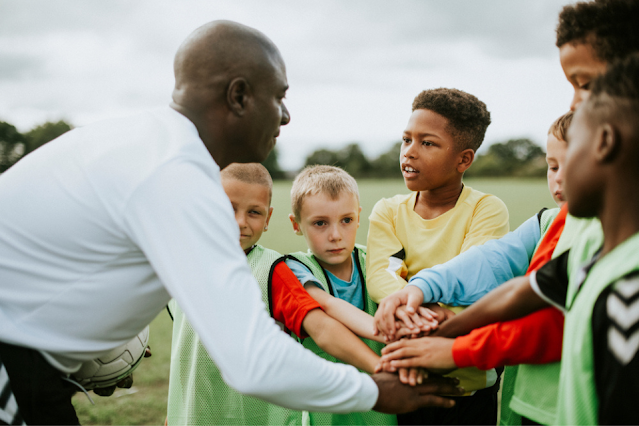By: Sheryl Dickinson, Army Veteran
In my 34 years of Army service, nobody I worked with—from newly enlisted soldiers to high-ranking officers—was exempt from stress. There were always deadlines to meet, people to brief, fitness tests to prepare for, deployments, and work and home obligations to balance. Even getting ready for retirement was a major emotional event. As I transitioned to civilian life to pursue my passion of coaching teen athletes, I realized they experience stress just like the soldiers I mentored over the years.Stress is a growing problem in youth sports
Life can be extremely stressful for teens as they navigate the physical, mental, and emotional changes they’re living through. Teen athletes can face even more pressures than their nonathletic peers—at home, school, and in competition—which only adds to the complexity of that stage of their lives. Compared to their nonathlete peers, these kids find themselves trying to deal with stressors they never knew existed.
These are just some examples of what I've heard teenage girls discuss at volleyball practice:
- How do I get my homework done when I have practice after school and tournaments on weekends?
- When am I supposed to do my chores?
- What do I say to my parents when I sit on the bench and they remind me how much they paid for me to play?
- What happens if my grades slip?
- My friends are annoyed I don't have as much time for them. What should I do?
Stress mindset strategies
To help young people (and yourself) combat stress, teach them how their stress mindset can impact their performance, health, and well-being.
- Show them the science behind how the stress response system works and the benefits of stress by sharing the article on how to make stress good for you.
- Use the “Create a 'Stress Helps Me' Mindset” worksheet as a group or in pairs to explore past experiences where stress helped optimize their performance, live out their values, and grow from adversity.
- Teach them how to use the individual zone of optimal functioning (IZOF) or stress “sweet spot” to optimize performance. And use HPRC’s stress optimization daily reminder as a tool for mind and body success.
Mindfulness training to optimize stress
Mindfulness practices can help anyone optimize stress—including coaches, parents, and young athletes. Mindfulness is a person’s ability to experience thoughts, physical sensations, and perceptions, solely in the present and without judgment. When you practice mindfulness meditation, you only pay attention to the moment, without regard to what happened in the past or what might happen in the future. If a random thought creeps in, you accept it without judgment. Then, you gently guide your thoughts back to the present.
Students who trained in mindfulness techniques reported they generally felt more positive emotions, more in control of their lives, better able to accept demanding situations, and fewer instances of unhealthy stress. For the talented young athletes who hope to advance to college or professional play, practicing mindfulness to optimize stress can help prevent burnout.
A nice thing about mindfulness is you can turn everyday activities into a mindfulness practice. You don’t need to devote a large chunk of time to gain the benefits, either. For example, you can do mindful walking, mindful listening, and mindful showering. You can watch a sunrise or sunset. You might have already experienced mindful eating if you’ve ever savored a meal where every bite was almost an emotional event and all you thought about was how beautiful the food was on the plate, how great everything smelled, and how delicious it tasted.
To keep track of which techniques you try with your athlete, use a worksheet to record each session. And to get the most benefit, practice daily for the first month or so. Who knows? You might also enjoy practicing mindfulness on a regular basis, and together with your junior athlete, benefit from lower anxiety, better concentration, and an increased feeling of general well-being.
* The opinions and assertions expressed herein are those of the author and do not reflect the official policy or position of USU or DoD. The contents of this publication are the sole responsibility of the author and do not reflect the views, opinions, or policies of The Henry M. Jackson Foundation for the Advancement of Military Medicine, Inc. Mention of trade names, commercial products, or organizations does not imply endorsement by the U.S. Government. The author has no financial interests or relationships to disclose.






